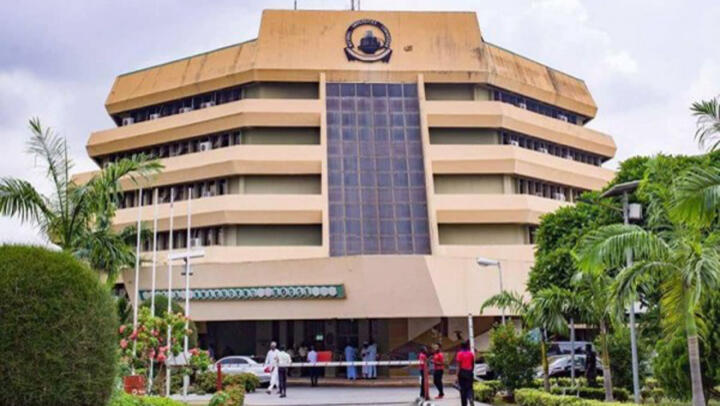The Federal Government is currently reviewing a total of 270 new applications for the establishment of private universities, a move that has reignited discussions about the proliferation of higher education institutions and the existing challenges within the education sector. This development, reported exclusively by Infostride News, has prompted renewed concerns among the public regarding the quality and sustainability of these institutions, given the already existing issues such as inadequate budgetary allocations for education.
If these applications receive approval, it is anticipated that the total number of universities in Nigeria will surge to 528, with a significant majority—418 of them—being privately owned. This stands in stark contrast to the current landscape, where Nigeria houses 258 universities, comprising 50 federal, 60 state-owned, and 148 privately owned institutions.
The exponential growth in the number of universities over the years has not translated into a proportional enhancement of educational standards, raising eyebrows among various stakeholders. Notably, during the eight-year tenure of President Muhammadu Buhari, no less than 90 universities were given the green light to commence operations.

Despite this surge in university establishments, the performance of Nigerian universities remains a subject of critique. Data from the National Universities Commission (NUC) indicates that from 2015 to the present, there have been 10 new federal, 22 state, and 58 private universities established. However, the quality of education provided by these institutions has come under scrutiny, with concerns raised about their traditional focus, underperformance in research, and a lack of emphasis on innovation and entrepreneurship.
In theory, an increase in the number of universities to 528 should foster healthy competition, leading to elevated standards across the board. Paradoxically, experts express reservations, suggesting that the rise in institutions might be inversely proportional to the maintenance of quality standards. The imperative, they argue, lies in universities addressing critical gaps in life skills, leadership, entrepreneurship, and the integration of innovative technologies.
A survey conducted by the NUC reveals that only around 30% of the country’s student population has adequate access to essential resources such as lecture theatres, laboratories, and libraries. The growing number of candidates seeking admission exacerbates these challenges, with over five million candidates between 2018 and 2022 unable to secure placement.
The debate over the establishment of new universities continues to be a contentious issue. Advocates argue that creating additional options benefits candidates, while others contend that resources should be directed towards enhancing existing institutions, particularly federal and state-owned universities. The Academic Staff Union of Universities (ASUU) has consistently called for a halt to the establishment of new universities, urging the government to prioritize the adequate funding of existing ones.
Prominent voices in the academic community emphasize the need to strengthen infrastructure in existing institutions. Isa Daniel, a research assistant at the University of Jos, stresses the importance of investing in infrastructure for current universities, citing the availability of vast land resources that require modern facilities for effective learning. He emphasizes the need to revamp, equip, and modernize existing institutions as a crucial step in addressing the deficiencies in the education sector.
Dr. Adigun Ogundele, a leader of ASUU at Olabisi Onabanjo University (OOU), Ago Iwoye, raises concerns about the approval of more private universities. He argues that many private institutions lack the necessary manpower and facilities to sustain the programs for which they receive accreditation from the NUC. This often results in a heavy reliance on resources from public universities, putting additional strain on an already burdened public education system.
In contrast, Prof. Yakubu Ochefu, the secretary of the Committee of Vice-Chancellors of Nigerian Universities (CVCNU), counters this perspective by highlighting the low university enrollment rate in the country, standing at approximately eight percent. This figure falls below the African average of 13 percent and the global average of 33 percent. Ochefu contends that the limited available spaces deny admission to many qualified candidates, necessitating the establishment of more universities.
Despite having the highest number of universities in Africa, Ochefu argues that the quantity is insufficient when considering the population index of Nigeria. On a different note, Prof. Usman Ahmed, the Dean of Postgraduate Studies at Bayero University, Kano (BUK), predicts a continuous increase in private universities owing to the country’s diverse population.
In conclusion, the Federal Government’s consideration of 270 new applications for private universities has sparked a multifaceted discourse on the state of higher education in Nigeria. The overarching concern remains the quality and sustainability of these institutions in the face of existing challenges. As the debate unfolds, the need for a balanced approach that addresses both the quantity and quality of higher education in Nigeria becomes increasingly apparent.
Support InfoStride News' Credible Journalism: Only credible journalism can guarantee a fair, accountable and transparent society, including democracy and government. It involves a lot of efforts and money. We need your support. Click here to Donate
